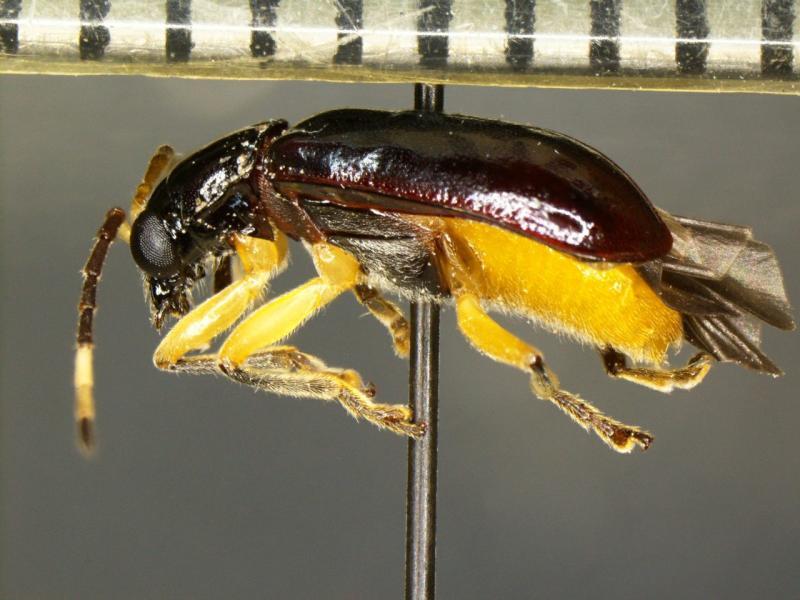Border agents block rare and destructive beetle from entering US
This is the first time the species has ever been found at America’s borders, according to Customs and Border Protection

Your support helps us to tell the story
From reproductive rights to climate change to Big Tech, The Independent is on the ground when the story is developing. Whether it's investigating the financials of Elon Musk's pro-Trump PAC or producing our latest documentary, 'The A Word', which shines a light on the American women fighting for reproductive rights, we know how important it is to parse out the facts from the messaging.
At such a critical moment in US history, we need reporters on the ground. Your donation allows us to keep sending journalists to speak to both sides of the story.
The Independent is trusted by Americans across the entire political spectrum. And unlike many other quality news outlets, we choose not to lock Americans out of our reporting and analysis with paywalls. We believe quality journalism should be available to everyone, paid for by those who can afford it.
Your support makes all the difference.US border officials have stopped a dangerous intruder from entering the United States: a rare, leaf-eating beetle.
US Customs and Border Protection (CBP) says it apprehended the insect, called Cochabamba sp, at the Pharr International Bridge in Texas on 2 May. According to the agency, the sneaky beetle had smuggled itself inside a shipment of fresh fruit.
Officials say this is the first time the species has ever been found in the country.
“Our agriculture specialists help protect American agriculture and contribute to the nation’s economic security by denying entry to invasive species not known to exist in the US,” said Carlos Rodriguez, director of the Hidalgo/Pharr/Anzalduas Port of Entry.
According to CBP, the specialists found the bug creeping around a box of mangosteen, a tropical fruit. The produce never made it past the border.
“The shipment was refused entry and returned to Mexico,” the agency said.
Meanwhile, the insect itself was taken to a laboratory for analysis. There, biologists with the Department of Agriculture confirmed that it belonged to the Cochabamba species, an extremely destructive breed of leaf beetle.
“This pest can cause agricultural and economic damage as their larvae skeletonize the leaf surface and adults eat plant and tree leaves and cause damage to foliage,” CBP explained.
The species is native to Central and South America, but has been migrating north.
In a statement, CBP praised the work of its specialists in blocking the beetle.
“The interception is an example of the diligent work CBP agriculture specialists do on a daily basis to fulfill CBP’s agriculture mission, which is crucial in preventing foreign pests from establishing in the United States,” CBP said. “Pests that are not known to occur in the US may be detrimental to the nation’s agriculture industry.”





Join our commenting forum
Join thought-provoking conversations, follow other Independent readers and see their replies
Comments